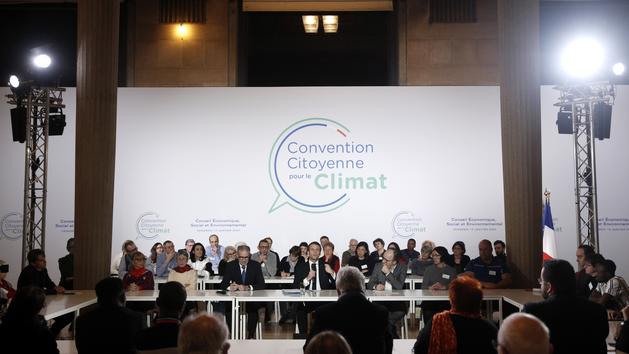“ Include citizens in the governance of mobility at local and national level. The very " techno " tone of this proposal makes one think more of a recommendation of an administrative report from the state services than of the conclusions of an assembly of citizens chosen at random in the country. This is one of the comments that comes up regularly on social networks: even if it means involving citizens directly in democratic deliberation, we could have expected more originality from its results.
Read also: "The Citizen Climate Convention will give rise to great waste"
Instead, the 150 or so proposals, marked economically on the left, have an air of deja vu. Let us think of the proposal to reduce weekly working time to 28 hours - ultimately not accepted -, to increase the minimum wage, the taxation of dividends, etc. " Disappointment with the results of the so-called citizen convention: resumption of the vulgate of the environmental lobby, (...) ignorance of the economy, total lack of legitimacy. The draw confirmed as a democratic sham! ", Attack on Twitter Senator LR Philippe Bas, president of the Law Commission.
Many other proposals together form a vast list of prohibitions or at least limitations: prohibition of the sale of the most polluting vehicles, certain advertisements, illuminated signs, heated terraces in bars and restaurants, limitation of highway at 110 km / h. It is the return of punitive ecology, some say, some joking about the " Green Khmers ". “ The citizens' convention promised to be a remarkable factory for taxes, prohibitions and other Soviet projects repainted in green. Its production exceeds all expectations ”, tackle for example Olivier Babeau, president of the think tank Institut Sapiens, marked on the right.
Amazing oversights
On France Info, the proposals are also scrutinized by a lawyer recognized in environmental law, Maître Nicolas Gossement, who participated in 2007 in the Grenelle of the environment as spokesperson for the France Nature environment associative network. “ This report could have been titled 'Tomorrow, we shave for free'. It is a compilation of generous ideas that have existed for 20 years, "said the lawyer, adding:" We could expect a report from citizens. In many ways, it is an expert report: it is obvious that a lot of proposals were not developed by the citizens. The message of the organizers is to say that they had the support of qualified experts (...) We would have liked a little more recklessness on the part of citizens. When you ask the state administration for notes on what measures you can take, you get that . ”
The environmental law specialist also notes blind spots. Thus, the Convention does not really pronounce on the idea of a " carbon tax ". " Almost all of the angry subjects have been put aside, " notes Maître Gossement. Nothing, for example, on nuclear power, which nevertheless provides 70% of French electricity production. Whether one is “ for ” or “ against ”, this oversight is surprising. Conversely, some new, imprecise proposals already exist ... " The renovation of buildings is in two recent laws. It is not at all new, I did not see any big difference, apart from the fact that we extend the deadline to 2040. They should have clarified what exists, what we will modify, and how it 'is modifiable ', continues the lawyer.
Read also: Citizen Convention for Climate: Macron will provide “a first response” on June 29
Critics that we also hear in the mouth of a liberal economist, Jean-Marc Daniel, professor emeritus at ESCP Europe, at the microphone of BFMTV. “ What is quite surprising in these proposals is that the sample is supposed to be representative. The term "randomize" has been used extensively during the coronavirus crisis. I'm not sure if this sample was randomized , notes the economist. The selection techniques would have made it possible to have a fairly objective vision of the reality of those who think French citizens. In any case, if they think that, it is a rather radical and rather negative vision of the future. This raises the question of the legitimacy of forms of direct democracy.

